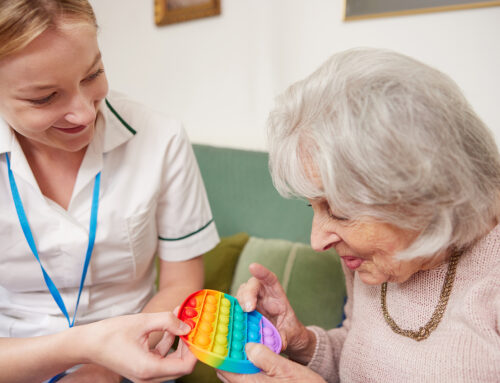When seniors are facing a terminal illness, it is crucial for family members to find ways to empower and motivate them to maintain their sense of dignity, independence, and purpose. Finding the right help is essential because family members can’t do all of this on their own. Skilled nursing care providers are a powerful tool that family caregivers can enlist to help them ensure that their aging family members have the help that they need as they battle a terminal illness.
Open and Honest Communication
It’s really important to maintain open and honest communication with seniors about their illness, treatment options, and prognosis. It can be tempting to only focus on the positives or to keep bad news away from the person facing a terminal illness, but this isn’t helpful. Encourage them to express their thoughts, fears, and desires. Actively listen and provide reassurance and support. By keeping the lines of communication open, seniors can feel empowered to make decisions about their care and maintain a sense of control over their lives.
Respect Individual Choices
Respect the autonomy and individual choices of seniors with terminal illnesses. Involving them in decision-making processes regarding their care, treatment options, and end-of-life preferences gives them a sense that there is still something they can control. Ensure their wishes are honored, even if they differ from your own.
Encourage Self-Expression and Creativity
Encourage seniors to express themselves creatively through activities like painting, writing, or music. Engaging in creative pursuits can help them find joy, express emotions, and leave a meaningful legacy. Provide the necessary tools and support to facilitate these activities and celebrate their unique talents and achievements.
Foster Social Connections
Support seniors in maintaining social connections with family members, friends, and their community. Encourage visits, phone calls, or video chats with family and friends. Organize social events or outings, ensuring their safety and comfort. Social interactions can offer emotional support, reduce isolation, and help seniors to feel like they still belong, which can be uplifting for seniors during their illness.
Offer Emotional Support
Be present and offer emotional support to seniors with terminal illnesses. Listen without judgment, validate their feelings, and provide a safe space for them to express their emotions. Offer comforting gestures, such as holding their hand or offering a shoulder to lean on. Consider seeking the assistance of therapists, counselors, or support groups to provide additional emotional support.
Support Physical Well-Being
Promote physical well-being by providing support for seniors’ daily activities, including personal care, exercise, and nutrition. Skilled nursing professionals can assist with medication management, pain control, and mobility support. Physical well-being plays a significant role in maintaining a positive outlook, energy levels, and overall quality of life. Skilled nursing can offer experienced assistance as the illness worsens, too.
Empowering and motivating seniors with terminal illnesses is essential for their overall well-being and quality of life. By offering seniors a way to maintain some amount of control and incorporating support from skilled nursing professionals and other caregivers, family members can help their aging adults to have the experience that they want to have at the end of their lives.






